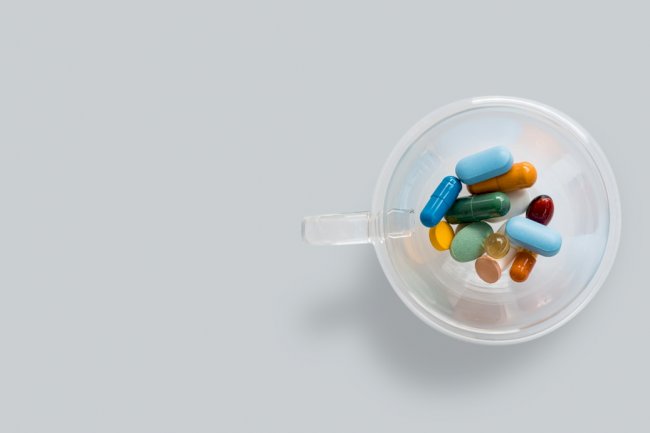Sexually Transmitted Infections And Its Implications
STIs and its implications, separating the facts from mere say.
A PHP Error was encountered
Severity: Notice
Message: Trying to access array offset on value of type null
Filename: helpers/custom_helper.php
Line Number: 294
Backtrace:
File: /home/fitbay5/public_html/application/helpers/custom_helper.php
Line: 294
Function: _error_handler
File: /home/fitbay5/public_html/application/views/admin/includes/_form_add_post_left.php
Line: 30
Function: old
According to the CDC (Centre for disease control) as at 2020, an estimated 62% of Africans have in the past and are presently undergoing treatment for an STI (Sexually transmitted infection). These infections include but not limited to chlamydia, gonorrhea, genital herpes, human papillomavirus (HPV), syphilis, and HIV. Many of these STDs do not show symptoms for a long time. Even without symptoms, they can still be harmful and passed on during sexual intercourse.
Lack of proper information, know how and general stigma has contributed to the ever increasing numbers amongst the African population, these being mostly ages 15 - 24.
THE FACTS
What Are Sexually Transmitted Infections (STI)?
STIs are diseases that are passed from one person to another explicitly through sexual contact.
How Common Are STIs?
These various infections are common among the young populace, as at 2020, an estimated 52% of the African population have had some form of STI. Mostly young people between the ages of 15 - 25 are at risk of contacting an STI.
How Are STIs Spread?
Basically by having sexual intercourse (can be oral, penetrative or anal) with an infected person. In most cases you can also contact these infections and diseases by skin to skin contact with an infected person, in cases such as HPV (Human Papilloma Virus) and Herpes, amongst others.
How To Know You've Contacted An STI?
As is the case with most Sexually transmitted infections, most offer no symptoms, the only surest way of ascertaining your status is by getting yourself tested, and by extension your partner. As they might also not witness any symptoms as well.
What Are The Symptoms Associated With STIs?
Symptoms include but not limited to:
Sores or bumps on the genitals or in the oral or rectal area.
-
Painful or burning urination.
-
Discharge from the penis.
-
Unusual or odorous vaginal discharge.
-
Unusual vaginal bleeding.
-
Pain during sex.
-
Sore, swollen lymph nodes, particularly in the groin but sometimes more widespread.
-
Lower abdominal pain.
-
Fever.
-
Rash over the trunk, hands or feet.
Are STIs Treatable?
Yes they can, but not all STIs, like in the case of Herpes, it can't be cured, but certain medications can help alleviate symptoms. For the other STIs that can be cured, a certified doctor or health care provider will prescribe some medications, could be in tablet, capsule, paste or injection form. More importantly your partner should also get tested and treated as well. In other to avoid re-infection.
Can STIs Be Left Untreated?
They shouldn't, as most STIs if left untreated can severely affect a womans/man's reproductive capabilities, day to day life and most often than not, they can as well lead to death.
How Can You Protect Yourself?
-
By making use of the available kit against STIs, such as condoms and the likes.
-
By choosing to abstain. No sex, no STI.
-
By having only one sexual partner, as this greatly reduces the risk of contacting an STI.
-
By having discussions with your partner on the safest methods available to you both concerning STI prevention and implementing it.
-
By getting vaccinated, as there are now various types of vaccines against most STIs.
What Are The Likely Causes Of An STI?
Can be caused by the following:
-
Bacteria - Such as gonorrhea, syphilis and chlamydia.
-
Parasites - Trichomoniasis, caused by a parasite.
-
Viruses - STIs caused by viruses include HPV, genital herpes and HIV.
How To Deal With An Incurable STI?
Understand that there are medications to help alleviate symptoms and considerably help to live a close to normal life. Also communicate with your partner about your status and discuss ways in which he/she can help protect him or herself from being infected as recommended by a certified doctor or health care provider.
Footnote For The African Youth
STIs can't be totally phased out, as there will always be risk factors stemming from carelessness, advent of new infections, inappropriate behaviour amongst other critical factors.
What Can Be Done? You can and should conciously look out for yourself, by strictly adhering to the laid out guidelines by health care professionals, abstain if you can, if you can't protect yourself, if eventually infected, get tested and treat as soon as possible. Above all live a health conscious life.
What's Your Reaction?







A PHP Error was encountered
Severity: Notice
Message: Trying to access array offset on value of type null
Filename: helpers/custom_helper.php
Line Number: 294
Backtrace:
File: /home/fitbay5/public_html/application/helpers/custom_helper.php
Line: 294
Function: _error_handler
File: /home/fitbay5/public_html/application/views/admin/includes/_form_add_post_left.php
Line: 30
Function: old
According to the CDC (Centre for disease control) as at 2020, an estimated 62% of Africans have in the past and are presently undergoing treatment for an STI (Sexually transmitted infection). These infections include but not limited to chlamydia, gonorrhea, genital herpes, human papillomavirus (HPV), syphilis, and HIV. Many of these STDs do not show symptoms for a long time. Even without symptoms, they can still be harmful and passed on during sexual intercourse.
Lack of proper information, know how and general stigma has contributed to the ever increasing numbers amongst the African population, these being mostly ages 15 - 24.
THE FACTS
What Are Sexually Transmitted Infections (STI)?
STIs are diseases that are passed from one person to another explicitly through sexual contact.
How Common Are STIs?
These various infections are common among the young populace, as at 2020, an estimated 52% of the African population have had some form of STI. Mostly young people between the ages of 15 - 25 are at risk of contacting an STI.
How Are STIs Spread?
Basically by having sexual intercourse (can be oral, penetrative or anal) with an infected person. In most cases you can also contact these infections and diseases by skin to skin contact with an infected person, in cases such as HPV (Human Papilloma Virus) and Herpes, amongst others.
How To Know You've Contacted An STI?
As is the case with most Sexually transmitted infections, most offer no symptoms, the only surest way of ascertaining your status is by getting yourself tested, and by extension your partner. As they might also not witness any symptoms as well.
What Are The Symptoms Associated With STIs?
Symptoms include but not limited to:
Sores or bumps on the genitals or in the oral or rectal area.
-
Painful or burning urination.
-
Discharge from the penis.
-
Unusual or odorous vaginal discharge.
-
Unusual vaginal bleeding.
-
Pain during sex.
-
Sore, swollen lymph nodes, particularly in the groin but sometimes more widespread.
-
Lower abdominal pain.
-
Fever.
-
Rash over the trunk, hands or feet.
Are STIs Treatable?
Yes they can, but not all STIs, like in the case of Herpes, it can't be cured, but certain medications can help alleviate symptoms. For the other STIs that can be cured, a certified doctor or health care provider will prescribe some medications, could be in tablet, capsule, paste or injection form. More importantly your partner should also get tested and treated as well. In other to avoid re-infection.
Can STIs Be Left Untreated?
They shouldn't, as most STIs if left untreated can severely affect a womans/man's reproductive capabilities, day to day life and most often than not, they can as well lead to death.
How Can You Protect Yourself?
-
By making use of the available kit against STIs, such as condoms and the likes.
-
By choosing to abstain. No sex, no STI.
-
By having only one sexual partner, as this greatly reduces the risk of contacting an STI.
-
By having discussions with your partner on the safest methods available to you both concerning STI prevention and implementing it.
-
By getting vaccinated, as there are now various types of vaccines against most STIs.
What Are The Likely Causes Of An STI?
Can be caused by the following:
-
Bacteria - Such as gonorrhea, syphilis and chlamydia.
-
Parasites - Trichomoniasis, caused by a parasite.
-
Viruses - STIs caused by viruses include HPV, genital herpes and HIV.
How To Deal With An Incurable STI?
Understand that there are medications to help alleviate symptoms and considerably help to live a close to normal life. Also communicate with your partner about your status and discuss ways in which he/she can help protect him or herself from being infected as recommended by a certified doctor or health care provider.
Footnote For The African Youth
STIs can't be totally phased out, as there will always be risk factors stemming from carelessness, advent of new infections, inappropriate behaviour amongst other critical factors.
What Can Be Done? You can and should conciously look out for yourself, by strictly adhering to the laid out guidelines by health care professionals, abstain if you can, if you can't protect yourself, if eventually infected, get tested and treat as soon as possible. Above all live a health conscious life.
What's Your Reaction?























